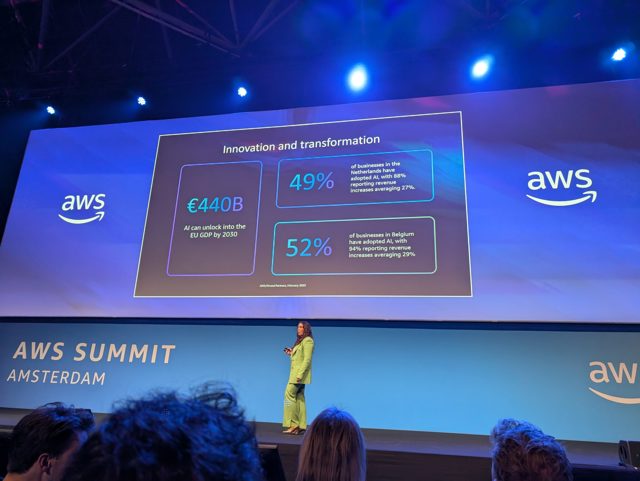< Back to news
The Dutch Research Council (NWO) has awarded the AI4AI project a grant of 6.1 million euros to an Amsterdam UMC-led consortium. The group will tackle accessibility issues in using and interpreting medical images and their output using AI. The goal is to enable less specialised experts to acquire and analyse medical images, eliminating the long waitlist and pressure on medical experts.
AI creating healthcare technological support
The growing demand for medical images not only strains radiologists and specialists, it is leading to burnouts and impacting care sustainability. The project aims to bring medical imaging closer to patients, enhancing accessibility and reducing travel needs. 


8 January 2024
Amsterdam UMC-led consortium secures €6.1M for AI in medical imaging project
The AI4AI project has been awarded €6.1M to develop AI with the aim to help alleviate the high demand for specialised healthcare personnel by making the collection and interpretation of medical imaging more accessible.
AI advancing healthcare accessibility
The Dutch Research Council (NWO) has awarded the AI4AI project a grant of 6.1 million euros to an Amsterdam UMC-led consortium. The group will tackle accessibility issues in using and interpreting medical images and their output using AI. The goal is to enable less specialised experts to acquire and analyse medical images, eliminating the long waitlist and pressure on medical experts.
Generally, medical images such as CT scans or expensive MRI scanners are captured at hospitals and require specialists to operate and analyse their output. The aim is to enable the utilisation of imaging devices by professionals like general practitioners, sonographers, and specialist nurses, thereby decreasing the dependency on highly specialised experts.
Using AI can help alleviate the pressure on specialised experts and personnel dealing with high demand and waiting lists as well as reducing associated costs.
"Our aim is to use artificial intelligence to develop technologies that allow the use of affordable and/or portable devices such as ultrasound and ultra-low-field MRI"
- Ivana Išgum - Amsterdam UMC Professor of Artificial Intelligence and Medical Imaging
- Ivana Išgum - Amsterdam UMC Professor of Artificial Intelligence and Medical Imaging
AI creating healthcare technological support
The growing demand for medical images not only strains radiologists and specialists, it is leading to burnouts and impacting care sustainability. The project aims to bring medical imaging closer to patients, enhancing accessibility and reducing travel needs.
Radiologist Nils Planken at Amsterdam UMC notes widespread enthusiasm among medical professionals for technological support. AI technology aiding in the creation, interpretation, and reporting of medical imaging studies holds promise to shorten waiting lists, reduce workload, and potentially enhance quality. Proper diagnostics outside the hospital setting can prevent unnecessary hospital visits and lead to more targeted referrals.
The Amsterdam UMC stands among a number of cutting-edge medical centres in Amsterdam that act as collaborative research, education, and test grounds for the latest innovations in patient care. The grant highlights the collaborative and innovative spirit thriving in the Amsterdam health sector – an ideal environment to transform research ideas into real world solutions.
This article was published on the I amsterdam website.
© I amsterdam, Dann Tardiff
© I amsterdam, Dann Tardiff
Vergelijkbaar >
Similar news items

April 16, 2025
AWS: Dutch businesses are adopting AI faster than the European average
New research from AWS shows that Dutch businesses are rapidly adopting AI—at a rate of one new implementation every four minutes, well ahead of the European average.
read more >

April 16, 2025
Submit your nomination for the Dutch Applied AI Award 2025
Do you know or develop an innovative AI application? Submit it now for the 2025 Dutch Applied AI Award, presented at the Computable Awards.
read more >

April 16, 2025
UK government tests AI to predict murders
The UK government is developing an AI system that could predict who is most likely to commit a serious crime. Critics call the project dangerous and discriminatory.
read more >